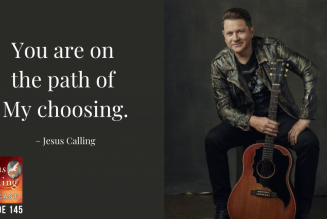
My daughter Madrid turned one a few weeks ago—an opportune milestone to reflect on what the Lord has taught me this past year. Many of these things I already knew, but I understand them better now having experienced one year of fatherhood. (And I’m nowhere close to comprehending them completely!) Here are the six things I understand better:
1) God’s love
I have discovered more about God’s love this past year than I have since I first became a believer. I understand God’s fatherly care and joy for his children in a far richer way after having experienced fatherhood myself. It’s mind-blowing thinking about how much I love my daughter, and realizing that God’s love for his children is infinitely deeper and purer! He delights in providing for his children’s needs, forgiving them, teaching them, disciplining them for their good, and raising them in grace and love. I can sympathize with his desire to see his children flourish in love and righteousness. My prayer is that my children will someday know the love of their Father in heaven.
2) Trusting God
I now have fears and worries that I didn’t even know existed before this past year. I am more aware of bacteria, my surrounding, driving, finances, decisions etc., because I’m concerned for the safety and welfare of my daughter. I am learning to trust God in ways that I never thought of before, taking rest in the fact that all things are in his sovereign, wise, and good hands. I also have to trust in him in my hope that my daughter will be saved, since I have no control over her decision to embrace Christ in faith.
3) Loving sacrificially
A father’s desires and a baby’s needs can often conflict. When I want to finish a project or relax after a long day of work, she needs food, or a diaper change, or constant attention because she prefers pulling books off my shelf and messing with electrical outlets rather than playing with her own toys. Sacrificial love consists in laying aside one’s desires to serve the benefit of another. And because children are dependent and needy, they multiply and amplify the opportunities to love sacrificially. Christ models sacrificial love through his life and his death for needy sinners who can give nothing in return. Imitating Christ, the goal is not to sacrifice for your child out of mere duty but out of love. If love is forgotten in the sacrifice, parents will become disgruntled and bitter and view the child as an inconvenience. Sacrificial love, on the other hand, finds joy in the sacrifice and in the good that it brings to your child.
4) The importance of my personal holiness
The early nineteenth-century Scottish preacher, Robert Murray M’Cheyne, once said, “The greatest need of my people is my personal holiness.” While he was a powerful communicator, compelling author, and intelligent thinker, M’Cheyne recognized that his congregation benefited most from his godly example. Likewise, I can throw my daughter ten feet in the sky and catch her, build her whatever fort (or doll house) she wants, and help her with science fair projects, but the ultimate way I can benefit her is to live holy before God and love him above all.
5) How to love my wife
Keeping the romance alive was almost effortless when my wife and I could stay out late roaming the town, taking spontaneous trips and going to concerts. But now we use a planner, and we’re usually home no later than 8:30pm. I have had to relearn how to love and care for Jaclyn not only as my wife but also as a mother. I also now have a little spectator who watches how her parents talk and act with each other, and it is my role to teach my daughter how a man should treat a woman. I’m learning the importance of giving my wife active communication after a long day of her watching a toddler. I’m learning how to get more creative to plan things for us to do together. Most importantly, I’m learning how much more my trustworthiness, stability, and godliness means to her now that I’m the father of her children. I’m learning to love and appreciate traits in my wife that have blossomed ever since we had a child: her care, tenderness, and joy over life.
6) How to slow down
I love feeling the pressure of deadlines, driving fast to get somewhere on time, stacking my schedule, and overall getting as much in as I can in as little amount of time possible. Babies don’t move fast; my style was seriously cramped this past year. This category is still on the “need to understand way better than I do” side, but it’s slowly improving. I’m learning to take more time to walk slowly, to sit at the dinner table and talk with my wife while Madrid’s rubbing her dinner in her hair, and to finish my books slower so I can read more with Madrid. It can be hard work to not always work hard, but slowing down to invest time and love in your family is worth every minute.
Ryan Hoselton is married to Jaclyn and they have one daughter, Madrid. He’s pursuing doctoral studies at Heidelberg University, and he enjoys writing on pop culture and church history. You can follow Ryan on Twitter @ryanhoselton










